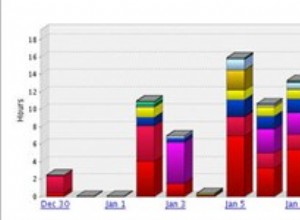Como alternativa ao SQL recursivo, você também pode usar o SQL
MODEL cláusula. Pessoalmente, acho isso um pouco mais fácil de ler do que o SQL recursivo, embora seja mais difícil de escrever (porque a maioria das pessoas, como eu, precisa procurar a sintaxe). -- "test_data" is just a substitute for your real table, which I don't have
-- it is just so people without your table can run this example and would
-- not be part of your real solution.
with test_data ( sort_col, addend ) as
( SELECT 'A', 3 FROM DUAL UNION ALL
SELECT 'B', 7 FROM DUAL UNION ALL
SELECT 'C', 6 FROM DUAL UNION ALL
SELECT 'D', 5 FROM DUAL UNION ALL
SELECT 'E', 9 FROM DUAL UNION ALL
SELECT 'F', 3 FROM DUAL UNION ALL
SELECT 'G', 8 FROM DUAL ),
-- Solution begins here
sorted_inputs ( sort_col, sort_order, addend, running_sum_max_15) as
( SELECT sort_col, row_number() over ( order by sort_col ) sort_order, addend, 0 from test_data )
SELECT sort_col, addend, running_sum_max_15
from sorted_inputs
model
dimension by (sort_order)
measures ( sort_col, addend, running_sum_max_15 )
rules update
( running_sum_max_15[1] = addend[1],
running_sum_max_15[sort_order>1] =
case when running_sum_max_15[CV(sort_order)-1] < 15 THEN
running_sum_max_15[CV(sort_order)-1] ELSE 0 END+addend[CV(sort_order)]
)
RESULTADOS
+----------+--------+--------------------+
| SORT_COL | ADDEND | RUNNING_SUM_MAX_15 |
+----------+--------+--------------------+
| A | 3 | 3 |
| B | 7 | 10 |
| C | 6 | 16 |
| D | 5 | 5 |
| E | 9 | 14 |
| F | 3 | 17 |
| G | 8 | 8 |
+----------+--------+--------------------+




